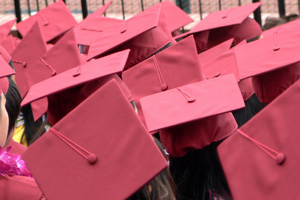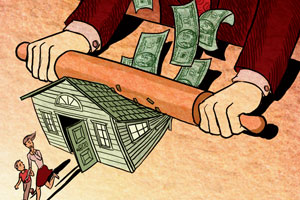Last month, I reported on a glaring omission in the Senate’s 1,500-page financial reform bill: private student lenders, once described by New York Attorney General Andrew Cuomo as the “Wild West” of lending. These lenders, like juggernaut Sallie Mae, who often cater to subprime borrowers, saw the dollar amount of their loans grow from $7.2 billion to $15 billion between the 2003-04 and 2007-08 academic years. Over that same period, the percentage of students with private loans climbed from 5 percent (935,000 borrowers) to 14 percent in 2007-08 (nearly 3 million). Accompanying that growth, though, have been rampant predatory lending complaints, from peddling usurious interest rates to targeting the homeless and other people obviously without the means to pay off tens of thousands of dollars in debt.
Last night, top House lawmakers announced that private student lenders’ exemption is all but dead. The House’s conferees, who together with top sentators are trying to merge the chambers’ two financial reform bills, offered new rules that would subject private student lenders—along with payday lenders, check cashers, and money remitters, among others—to oversight under a new Consumer Financial Protection Bureau. What’s more, House conferees want to mandate that private student lenders get certification from a student’s college before giving that student a private loan. This certification ensures that students are actually eligible for loans of any kind, and if so, that they’ve exhausted all options for receiving federal loan money, which carries lower interest rates and is generally safer than private loans.
These changes proposed by the House would go a long way toward to cracking down on abuses in the private student loan business, while letting the honest lenders who provide a necessary service to students go about their business. Now, it’s up to the Senate, who left these lenders off the hook in the first round, to get on board.
















